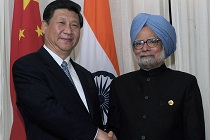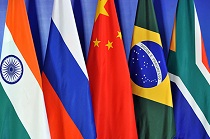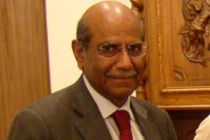Commentary: A BRICS bank for the South
In 1990, the erstwhile South Commission recommended the creation of a 'South Bank' to aid the economic emancipation of the global South. Can the BRICS bank, which was discussed in length at the 5th BRICS Summit, provide a solution to the problems of the crisis-ridden African continent? Devaki Jain blogs









